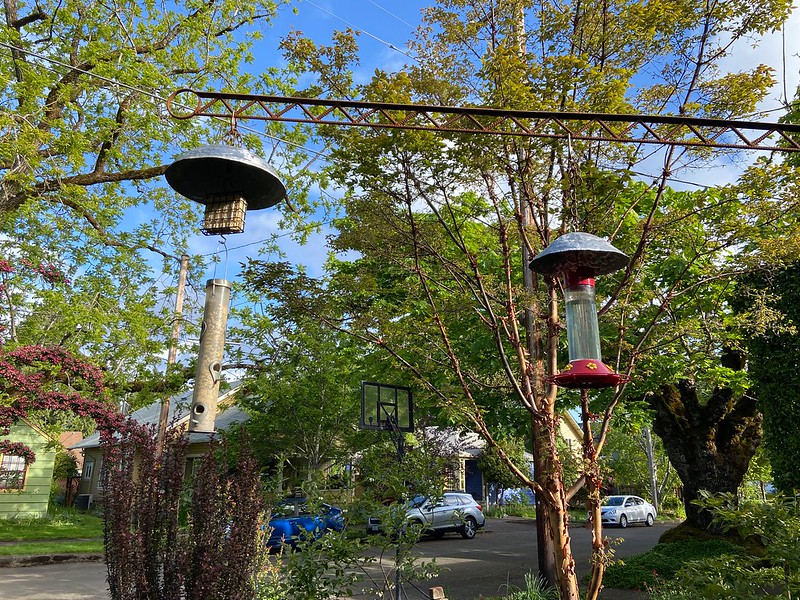 Local and statewide wildlife experts confirm there’s no need to take down bird feeders out of fear of the current avian influenza outbreak, which has hit neighboring Linn and Lane counties, but has been abating nationwide over the past month.
Local and statewide wildlife experts confirm there’s no need to take down bird feeders out of fear of the current avian influenza outbreak, which has hit neighboring Linn and Lane counties, but has been abating nationwide over the past month.
“Currently veterinarians tell us there is very low risk to native songbirds from the highly pathogenic avian influenza strain,” said Dana Sanchez, wildlife specialist at Oregon State University Extension Service, in a press release from OSU. “At this time there is no official recommendation to take down wild bird feeders.
“We still recommend that everyone practice good everyday hygiene for the wild birds by regularly cleaning feeders and birdbaths because of salmonella, mold and the ‘everyday’ health concerns that we can combat with regular cleaning of surfaces that get a lot of use.”
The Audubon Society of Corvallis recommends cleaning feeders regularly during any season, and has some additional guidance on cleaning bird baths and nesting boxes. Additionally, Sanchez advises using high-quality food — avoid mixes with red millet, golden millet, flax seed, rapeseed and oats, because they can attract rats and possibly sprout. Black oil sunflower seeds offer the biggest bang for diversity of birds. Check that suet isn’t going bad in the warmer months.
For those who raise poultry or waterfowl – the latter which are currently not being accepted by wildlife rehabilitation centers – the Audubon Society of Corvallis says that domestic bird food should be separated from wild bird feeders.
According to the Oregon Department of Fish and Wildlife (ODFW), waterfowl may not show symptoms if they have the virus, which can put other birds at rehabilitation centers at risk. It can be difficult as ducklings and goslings hatch to not want to try to help, but ODFW is asking that anyone who sees a hurt or dead bird should not try to pick it up or try to help. Instead, report it to the ODFW or Wildlife Health Lab.
Officials continue to ask everyone, not just poultry farmers, to practice caution and biosecurity at this time. Poultry farmers should report any sick birds to the Oregon Department of Agriculture.
The current outbreak of the highly pathogenic avian influenza has affected roughly 38 million birds across 40 states since January.
By Peggy Perdue
Do you have a story for The Advocate? Email editor@corvallisadvocate.com


